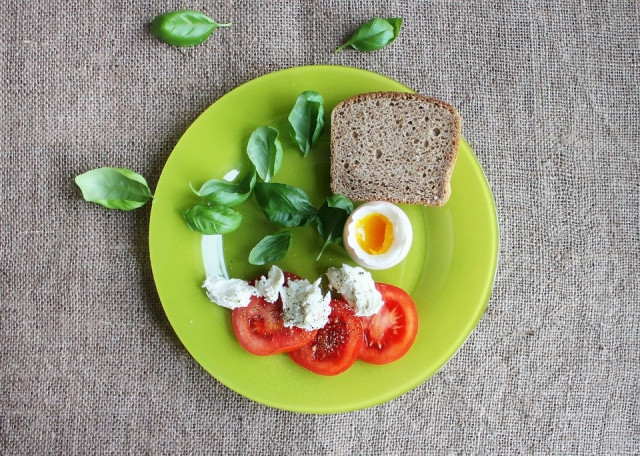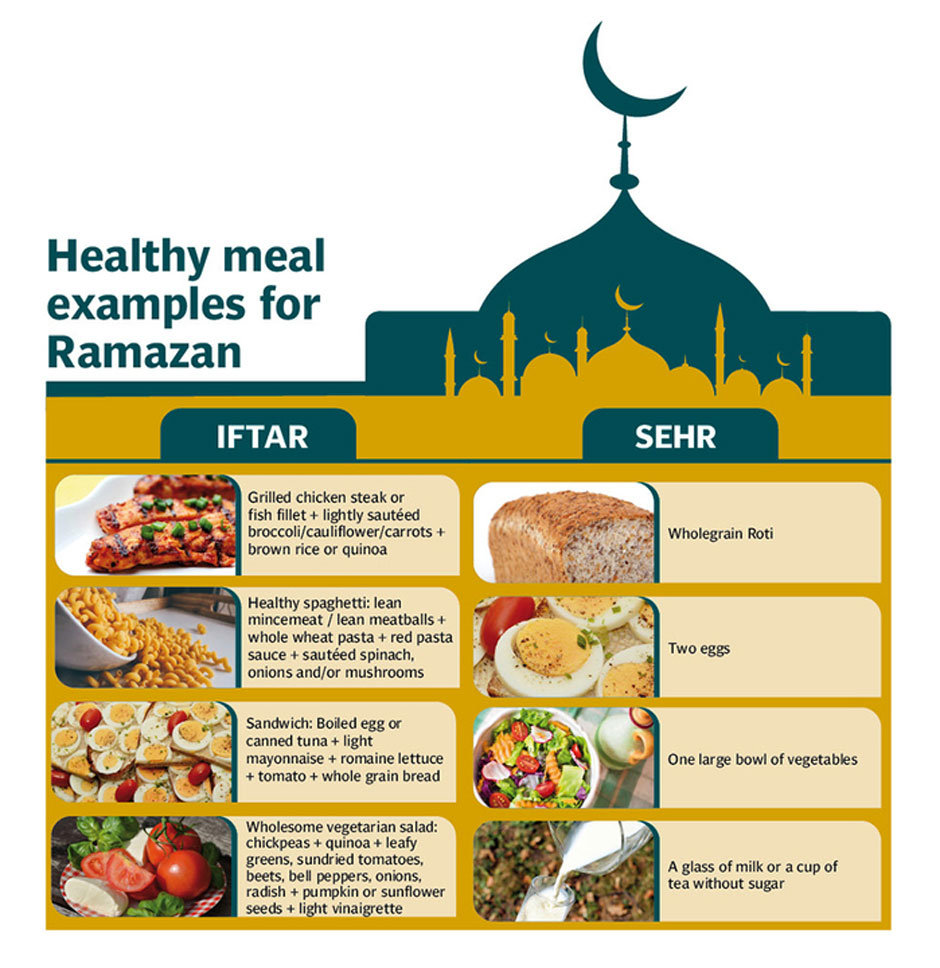How to reap maximum health benefits through fasting
Experts reveal the plus-side of going without food and water for hours

But since it is more than merely abstaining from food and water, there is a widespread belief among observers that fasting is known to have a number of health benefits for the human body.
The Express Tribune recently talked to doctors and nutritionists about the benefits of fasting for the human body but they all added that the practice is only beneficial insofar people do not indulge in gluttonous behaviour at iftar and adhere to a moderate, balanced diet.
How is fasting good for your health?
Speaking of the benefits of time-restricted fasting – wherein observers go periods with little or no food – Dr Mamoona Shafiq, associate professor of physiology at the Islamabad Medical and Dental College, explained that it has multiple benefits for the human body.

"Research has shown that fasting may improve blood sugar control, which could be particularly useful for people who are at risk of diabetes," she said. "Going on for periods without food may also help lower blood pressure, triglycerides and cholesterol levels."
According to Dr Shafiq, fasting may also decrease several markers of inflammation and be useful in treating inflammatory conditions such as multiple sclerosis.
"If done right, the practice of fasting can also help a person lose weight by limiting the intake of calories and boosting metabolism," she added.
Zoha Matin, a Karachi-based nutritionist and MSc in Human Nutrition and Dietetics from McGill University also agreed that fasting is beneficial for health.
She added that there are many scientific studies which show that going without food for 12 or more hours can promote health and longevity.
"Fasting has been shown to improve insulin resistance, enhance cellular repair, increase metabolism and it may even help prevent cancer," she said.
Sheikh Ehsan Noor, a certified nutritionist from the International Sports Sciences Association (ISSA) said that fasting is not only mandatory for Muslims but it also practiced in other cultures and religions in different ways. In fact, it has been used by people for thousands of years to heal the body.
Noor cited the example of Hippocrates –the father of modern medicine – who also advocated it as a healing mechanism. "Fasting is good for health because it helps detoxify our bodies. By opting for regular fasts, waste elements are drained out and the intestines are kept healthy," he explained.
Doctors and nutritionists, therefore, largely agree that fasting is good for health but discipline in what we eat before and after the fasting period is very important in ensuring that.
Should you work out during Ramazan?
Iftar: re-energising the body vs gluttony
It's not uncommon to see people indulging in delicious meals for
iftar. Be it traditional snacks like fried rolls and fritters or parathas and biryani, people make sure to 'replenish' their bodies with as much food as they can immediately upon breaking their fast.
But Dr Shafiq stressed upon the need to adopt a healthier diet during Ramazan and said that while time-restricted fasting could have various health benefits for individuals, the tradition of eating large quantities of deep fried and oily food – which is almost always devoid of nutritional value – can cause health problem instead.
"People fast throughout the day and suddenly indulge in fried and fatty food. Not only that but they also overeat, believing that eating too much would make up for the fasting period," she shared.
As a result, many people develop bloating, gaseous distension, gastritis, reflux symptoms and can even experience vomiting. Matin added overeating, especially foods high in fat and sugar – read pakoras, samosas, and sugary drinks – can cause lethargy along with weight gain.
"Excess carbohydrate consumption also leads to increased sleepiness and lethargy after iftar and instead of boosting their metabolism, most people end up gaining weight during Ramazan by overindulging in high-calorie foods."
So what should one eat at ‘sehri’ and ‘iftari?’

While many people are aware of the dangers of consuming oil-rich food on a daily basis throughout the month, they are mostly clueless when it comes to making healthier food choices.
According to Noor, people consume only two meals in Ramazan so it is necessary to choose items from all food groups. "One must make
sure to consume a balanced diet so that they don't end up suffering from any vitamin or mineral deficiencies as a result of fasting," he said.
For sehri, Matin suggested that in order to ensure that the meal is filling and provides enough energy for many hours, one should opt for foods that have a low glycemic index (GI).
"Low GI foods are those that contain carbohydrates that break
down more slowly, releasing energy more steadily to your body and helping keep your blood-sugar levels steady."
She recommends high-fibre breakfast cereals with
milk, preferably one that provides at least five grams of fibre per serving.
"Compare different cereals – read the labels and choose one that is higher in fibre and lower in sugar," she recommended.
Noor suggested opting for eggs, wholegrain roti, a bowl of veggies and a glass of milk or a cup of tea without sugar if the goal is to lose weight in a healthy way.
As for iftar, Matin prescribes breaking the fast slowly to give your body enough time to digest the food.
"Start by drinking plenty of water, which helps rehydration
and reduces the chances of overindulgence. Then, consume one or two dates before starting your main meal," she said.
Dates are a great source of energy for the body as they help in secreting digestive enzymes in preparation for the upcoming meal.
They also provide natural sugars for energy, minerals like potassium, copper and manganese and fibre. Matin also explained that one does not have to go completely cold turkey when it comes to delicious meals and suggested healthier ways of cooking to satiate
cravings.
"Baking or air-frying many items that are traditionally deep-fried can
help one cut down the oil and calories tremendously," she concluded.
Fasting for extended periods of time
Considering its health benefits, some people opt for fasting beyond the month of Ramazan. Shedding light on the matter, Dr Muhammad Zafar, consultant family medicine with NHS Worcestershire, UK, said that there are multiple theories and mixed opinions about extended periods of fasting. While some consider it normal, others are of the view that it could have negative effects too.
"Whether fasting for more than 30 days is good or bad depends on what a person intends to achieve from it," he explained. "Intermittent fasting – a health and fitness trend involving eating patterns that cycle between periods of eating and fasting – is common these days and apparently good for health."
Dr Zafar, however, added that a person's body will only continue to thrive if it is provided with enough calories and the right balance of food sources, including carbs, proteins and fats.
Have something to add to the story? Share it in the comments below.



















COMMENTS
Comments are moderated and generally will be posted if they are on-topic and not abusive.
For more information, please see our Comments FAQ